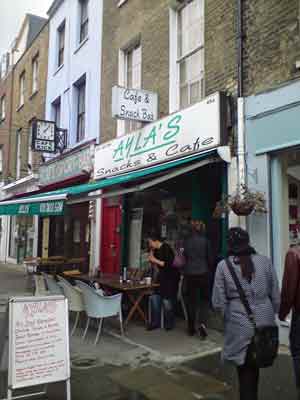Not satisfied with having recently finished the City University Certificate in Novel Writing while also doing the dissertation of an MSc in Software Development at the Open University, I’ve now taken the plunge and started an MA in Creative Writing. This is with Manchester Metropolitan University (MMU), although I’m doing the online route which can be done entirely remotely (they do offer some campus based activities and priority on their courses in association with the Arvon Foundation but they’re not compulsory). Due to my personal circumstances I can’t commit to physically travel to any particular place over the next year, let alone the two years a campus based MA would involve (the online route is three years).
Also, having travelled into central London two nights a week (or the weekend equivalent) for the City course during the last academic year, I think I pushed past the limits (in various senses) of physical course attendance, so won’t do more, at least for the time being. However, I will be meeting with most of the City cohort every month in London to continue workshopping — so that will mean some welcome human face-to-face interaction in addition to being a virtual student — and also, hopefully, a few sessions in the pub afterwards.
Ideally I might have taken more time out between courses but various doom-laden predictions of the axe currently being taken to higher and further education put a doubt in my mind about whether there would be the same level of choice of course available this time next year. I read a headline in the Times Education Supplement that a third of further education jobs would be cut. (Of course, this has the knock-on effect of reducing the usefulness of an MA in Creative Writing as one of its benefits over and above courses like the City Certificate and Arvon-style courses is that it increases one’s employability in the academic sector — something that would be figuratively academic were there a lot of unemployed creative writing teachers.)
There are a few online courses available but I liked the description of the MMU course as, for two terms a year, it employs as a teaching method a virtual chat room teaching method at set times with a tutorial led by a tutor. I was interested to see how this would work and, last Monday, I found out.
For the first term we look at examples of other novels, starting with ‘Old School’ by Tobias Woolff. This book is so well written that it has thoroughly depressed me, especially when at the same time as reading it I’ve been trying to revise some of my own first draft material, which seems so pedestrian and uninspired by comparison. However, it’s a very concise book (under 200 pages) and I suspect that Woolff’s superb prose was assisted by countless revisions and re-draftings.
The online tutorial seemed to work really well. It was led by Dr Jenny Mayhew, who’s the tutor of this module. The novel ‘route’ of the MA appears to be fully subscribed — with 12 students. (The selection process for the course was quite rigorous — with references required, a submission of both critical and creative work and an interview.) I was pleased to see a couple of students are based near me — in Berkhamsted and Hemel Hempstead — ironically places that I drove past on the way to Finsbury for the City course. There are people based in Spain and the Czech republic as well as elsewhere in the country. I’ve picked up a new blog reader already — Anne who’s from Denmark but lives in the UK and writes flawless English as far as I can tell. (I’ve already told her about having a fluent European ex-pat as a character in my novel.)
As well as criticism of a novel each week, we are expected to do a creative writing task inspired by the text — and I’ve got until Sunday to do one. I was pleased to discover this aspect as I enjoy writing exercises.
So now I can add Manchester Writing School (comprising the MMU department and its associated activities) to the lengthening list of universities where I’ve done creative writing — Open University, City and Lancaster. In case it appears that I’ll just end up with a bunch of certificates rather than a novel at the end of all this, the Manchester novel route carries something of a big stick that appeals in a masochistic way– you don’t pass until you’ve finished the bloody thing.

